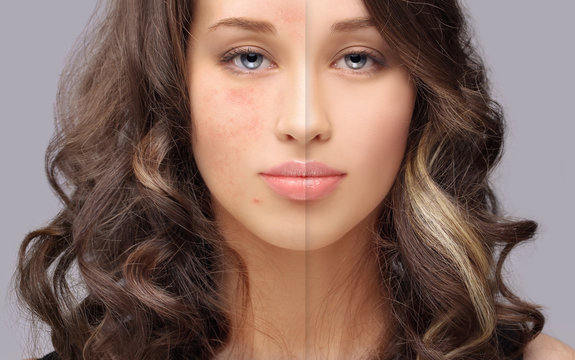Dubai, known for its luxurious lifestyle and vibrant beauty culture, has become a hub for advanced skincare treatments, including skin whitening. With the increasing demand for a lighter and more even complexion, many residents are seeking permanent solutions to address pigmentation issues such as dark spots, melasma, and sun damage. While the desire for a radiant and flawless skin tone is common, understanding the available techniques and procedures is crucial for those looking to explore Permanent Skin Whitening Treatment in Dubai options.
The Growing Popularity of Skin Whitening
Why People Opt for Skin Whitening
The pursuit of fairer skin has been a longstanding beauty ideal in many cultures, and Dubai is no exception. In addition to aesthetic appeal, skin whitening can also help reduce hyperpigmentation, melasma, and other skin conditions that result from prolonged sun exposure. In Dubai’s sunny climate, sunspots, uneven skin tone, and dark patches are common concerns, driving individuals to seek effective treatments that offer lasting results.
What Does Permanent Skin Whitening Mean?
Permanent skin whitening refers to treatments that significantly lighten the skin and reduce pigmentation on a long-term basis. While complete permanence is challenging to guarantee, certain procedures can offer results that last for an extended period, especially with proper aftercare and maintenance. These treatments target the underlying causes of pigmentation, providing a more even and bright complexion.
Common Techniques for Skin Whitening in Dubai
Laser Treatments
Laser treatments are among the most popular and effective methods for Permanent Skin Whitening Treatment. These procedures work by using focused light energy to target and break down excess melanin, the pigment responsible for skin color. The two main types of lasers used for skin whitening are Q-Switch Nd:YAG lasers and Fractional CO2 lasers. These lasers penetrate the skin’s deeper layers, stimulating the skin’s natural repair process and promoting the shedding of pigmented skin cells.
Q-Switch Nd:YAG lasers are particularly effective for treating dark spots, melasma, and other forms of hyperpigmentation, as they break down the melanin in the skin. Fractional CO2 lasers, on the other hand, work by resurfacing the skin, promoting collagen production, and improving the overall texture of the skin, in addition to lightening pigmentation. With these advanced technologies, laser treatments can provide long-lasting results for those looking for a permanent solution to skin discoloration.

Chemical Peels
Chemical peels are another popular option for those seeking permanent skin whitening. In this procedure, a chemical solution is applied to the skin, causing the outer layers to exfoliate and eventually peel off. This process reveals fresh, new skin underneath, which is typically lighter and more even in tone. Chemical peels are especially beneficial for treating sun damage, age spots, and mild to moderate hyperpigmentation.
There are different types of chemical peels, ranging from superficial to deep peels. Superficial peels, which involve milder acids, are used to treat light discoloration, while medium and deep peels use stronger acids to address more severe pigmentation issues. Regular treatments can help maintain the brightening effects of the peel, though the results may require touch-ups over time.
Microneedling with PRP
Microneedling combined with Platelet-Rich Plasma (PRP) is an increasingly popular skin whitening treatment in Dubai. Microneedling involves using tiny needles to create micro-injuries in the skin, which stimulates collagen and elastin production. When combined with PRP, which is derived from the patient’s own blood, this technique helps accelerate the skin’s natural healing process and enhances its rejuvenating effects.
PRP contains growth factors that help repair damaged skin cells and promote a brighter, more even skin tone. This combination not only helps lighten pigmentation but also improves overall skin texture, reduces fine lines, and enhances skin elasticity. Microneedling with PRP is especially effective for individuals with acne scars, melasma, and other forms of stubborn pigmentation.
Maintaining Results and Aftercare
Importance of Sun Protection
One of the most important aspects of maintaining the results of permanent skin whitening treatments is consistent sun protection. After undergoing treatments such as laser therapies or chemical peels, the skin becomes more sensitive to the sun’s harmful rays. Exposure to UV radiation can reverse the effects of skin whitening, leading to the return of dark spots and pigmentation.
Using a broad-spectrum sunscreen with a high SPF is essential to protect the skin from UV damage. Additionally, wearing protective clothing and seeking shade during peak sunlight hours can help maintain the brightness and evenness of the skin tone. Regular sun protection is key to ensuring long-lasting results and preventing further pigmentation issues.
Skincare Routine for Maintenance
A proper skincare routine is essential to maintaining the results of skin whitening treatments. After treatments like chemical peels or microneedling, it is crucial to avoid harsh skincare products that may irritate the skin. Gentle, hydrating products should be used to keep the skin nourished and moisturized. Antioxidant-rich serums and creams containing ingredients like vitamin C or niacinamide can help brighten the skin further and protect it from oxidative stress caused by environmental factors.
Exfoliating treatments can also be helpful in maintaining a smooth and even skin tone, but they should be used cautiously to avoid over-exfoliation, which can cause irritation. Regular follow-up treatments may be recommended depending on the type of procedure, ensuring that the skin continues to improve over time.
Considerations Before Choosing Skin Whitening Treatments
Understanding Skin Sensitivity
While skin whitening treatments can provide long-lasting results, it is essential to understand that not all skin types respond the same way to certain procedures. Individuals with sensitive skin or specific skin conditions may experience adverse reactions to certain treatments, such as redness, irritation, or scarring. It’s important to consult with a professional to assess your skin type and determine the most suitable treatment plan for your needs.
Realistic Expectations
It is also important to manage expectations when it comes to permanent skin whitening. While significant improvements can be made, the degree of lightening will vary from person to person. Factors such as skin type, pigmentation level, and adherence to aftercare can all affect the final results. Setting realistic goals and understanding the limitations of each treatment will ensure a more satisfying experience.
Conclusion
Permanent skin whitening treatments in Dubai offer a variety of options for individuals seeking a brighter, more even complexion. Techniques such as laser treatments, chemical peels, and microneedling with PRP provide effective solutions for reducing pigmentation and achieving a luminous skin tone. However, it is essential to understand the importance of aftercare, including sun protection and a proper skincare routine, to maintain the results over time. By carefully considering the available options and consulting with professionals, individuals can achieve long-lasting skin whitening results that enhance their natural beauty.





Comments